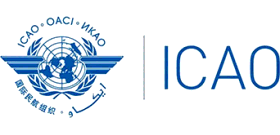 Nigeria Leads Global Aviation Discussions at ICAO Conference
Nigeria Leads Global Aviation Discussions at ICAO Conference
Nigerian aviation authorities and industry leaders took center stage at the 14th Air Navigation Conference (AN-Conf/14) in Montreal, Canada. The event, hosted by the International Civil Aviation Organization (ICAO), brought together experts from around the world to discuss the future of air traffic management, safety, security, and sustainability.
Representing Nigeria was Engr. Farouk Ahmed Umar, Managing Director of the Nigerian Airspace Management Agency (NAMA). Accompanying him were top NAMA officials and key stakeholders from the Nigerian Civil Aviation Authority (NCAA) and other aviation industry players. The image maker for NAMA, Alhaji Abdullahi Musa in a statement says, the conference theme, “Performance Improvement Driving Sustainability,” focused on how countries can adapt to the rapidly evolving aviation landscape while addressing environmental challenges.
Nigeria, as a significant player in African aviation, played a pivotal role in shaping the global conversation.
As contained in the statement, key discussions centered on ICAO’s ambitious goal of achieving net zero carbon emissions in international aviation by 2050. Nigerian delegates actively participated in exploring innovative solutions and strategies to align with this target while maintaining safety standards. The conference also provided a platform for Nigeria to contribute to ICAO’s long-term strategic planning. Recommendations from the event will inform the organization’s Business Plan for 2023-2025 and guide future priorities in the aviation sector.
Engr. Farouk Ahmed Umar emphasized the importance of Nigeria’s participation: “This conference is a crucial opportunity for Nigeria to stay at the forefront of global aviation trends. By actively contributing to these discussions, we are not only improving our own air traffic management capabilities but also helping to shape the future of aviation worldwide.”
The conference’s outcomes will have a direct impact on Nigeria’s aviation policies and regulations. By adopting global best practices, the country aims to enhance air traffic safety, security, and environmental sustainability.
